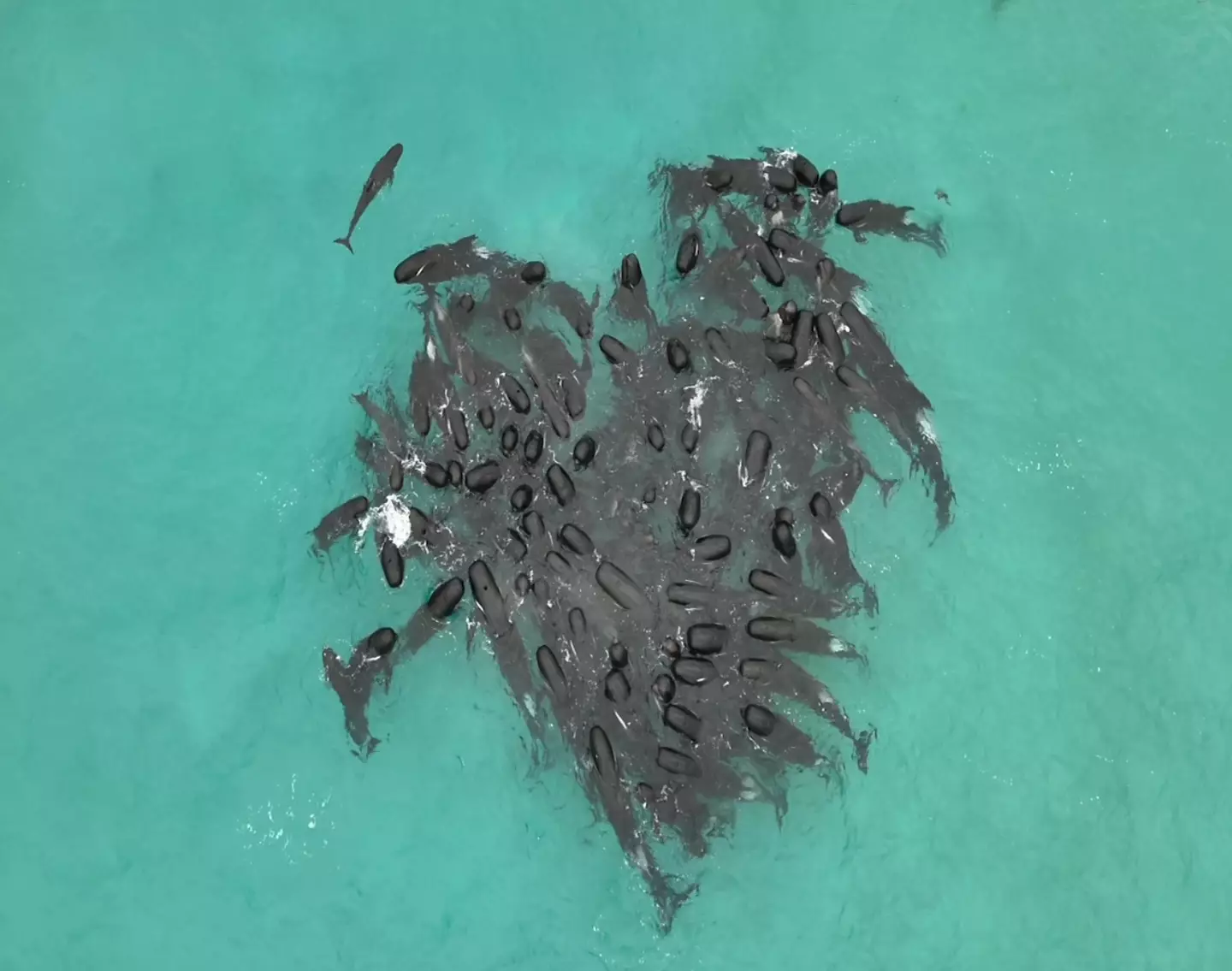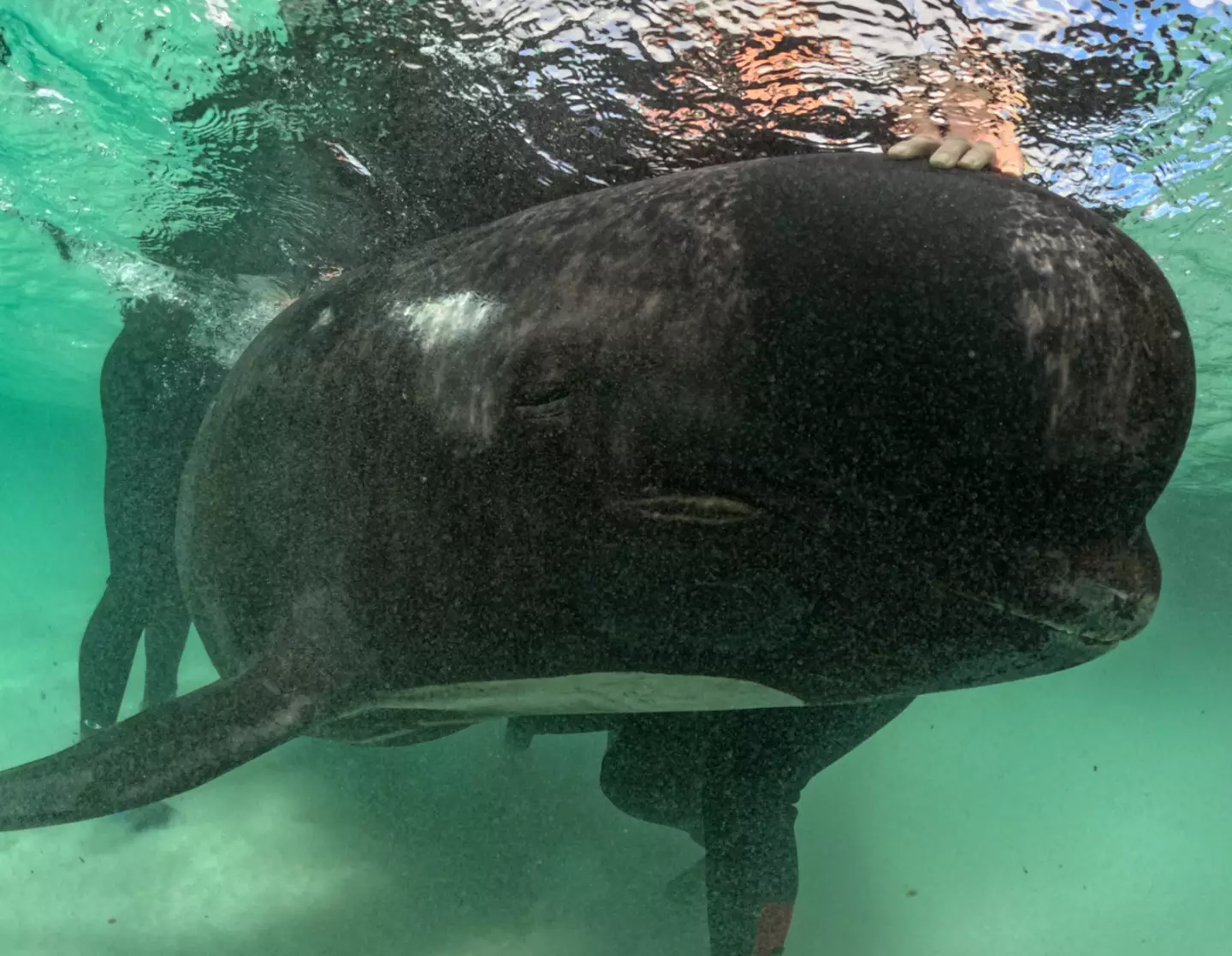.webp)
Topics: Animals, World News, Australia
A pod of almost 100 whales could be seen huddling together in a heart shape off the coast of Australia, shortly before a disaster struck.
The images were taken in July last year, off the coast of Cheynes Beach in southern WA.
In the spectacular images - shared by the Parks and Wildlife Service - the whales could be seen unknowingly forming a heart shape in the ocean.
After the unusual formation was spotted, the DBCA Parks and Wildlife Service Albany District attended the scene to monitor the pod's movements.
Advert
At the time, they asked the public to keep their distance and refrain from getting too close to the whales.
But sadly, the beautiful scene took a tragic turn when the whales began approaching the beach and became stranded on the sand.

DBCA officers quickly worked to try and manage the incident, with numerous volunteers offering their support to help the whales.
Advert
A team of experienced staff were also sent to the scene, including Perth Zoo veterinarians and marine fauna experts.
Marine biologist Dr Vanessa Pirotta told Sky News the pod was an 'incredible sight', but admitted experts have 'no idea' why the whales deliberately came up on to the beach.
“I personally have never seen anything like this. Pilot whales are largely an offshore species. They are very social. They hang out together. But like this? This is super unusual," she said.
The response teams had specialised equipment, including vessels and slings, to try and rescue the whales, but sadly, 51 whales had died during the incident.
Advert

"Parks and Wildlife Service personnel are working in partnership with registered volunteers and other organisations to try to return the remaining 46 whales to deeper water during the course of the day," a post on Facebook read.
"Thanks so much for the messages of support. The Parks and Wildlife Service has been overwhelmed with hundreds of offers of help to rescue the stranded whales, and we now have enough registered volunteers."
Members of the public were urged to stay away from the beach, for safety reasons.
Advert
"The priority focus of the Incident Management Team is to ensure the safety of staff and volunteers and the welfare of the whales," they continued.
"The response zone has a range of hazards, including large, distressed and potentially sick whales, sharks, waves, heavy machinery and vessels."
Dr Pirotta told ABC some possible reasons for the stranding may be that the whales gathered around one sick member of the group, got lost due to navigational problems, or moved to avoid orcas hunting nearby.